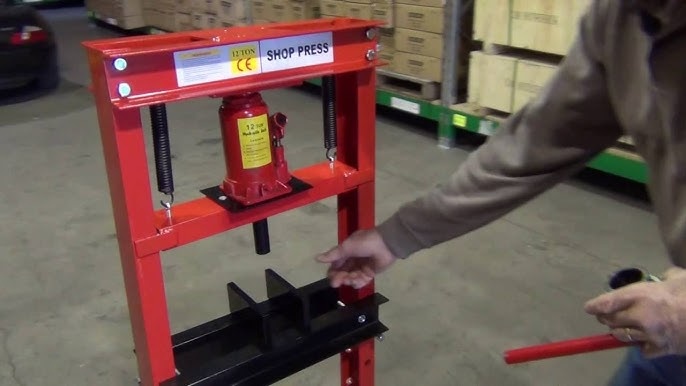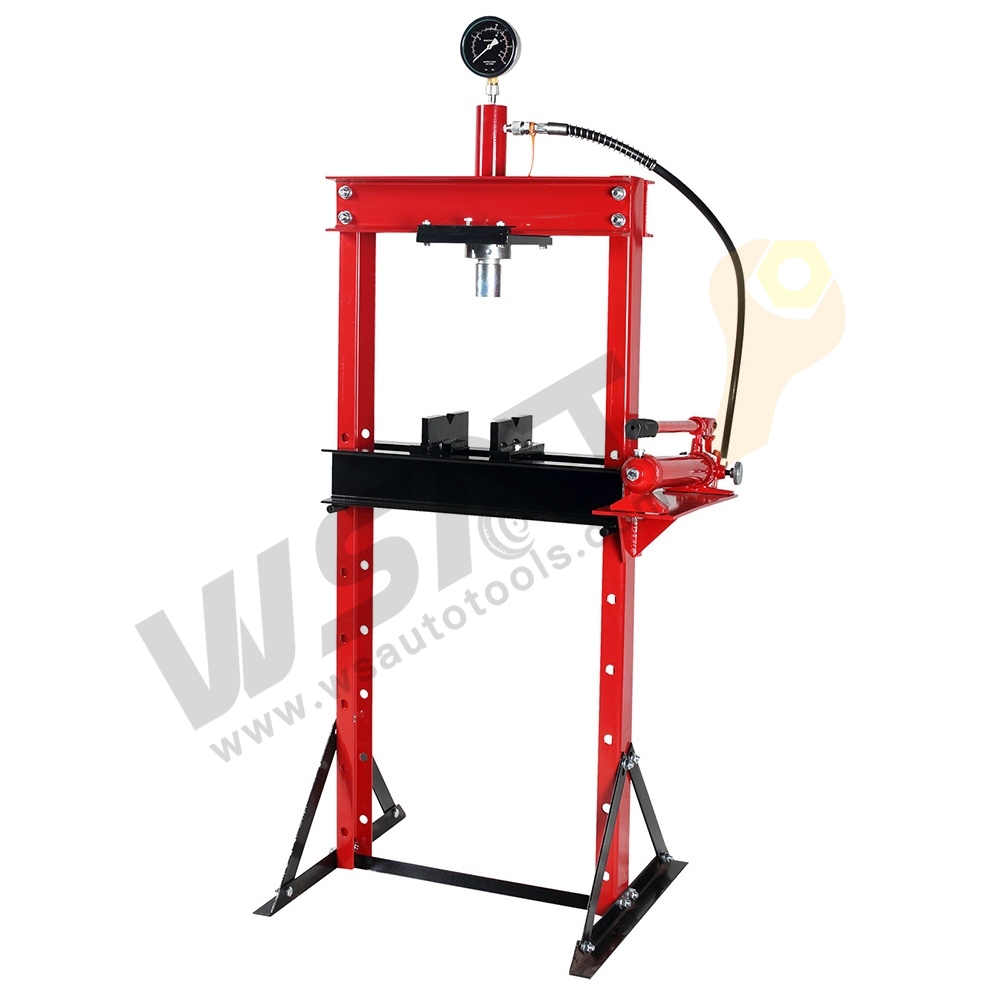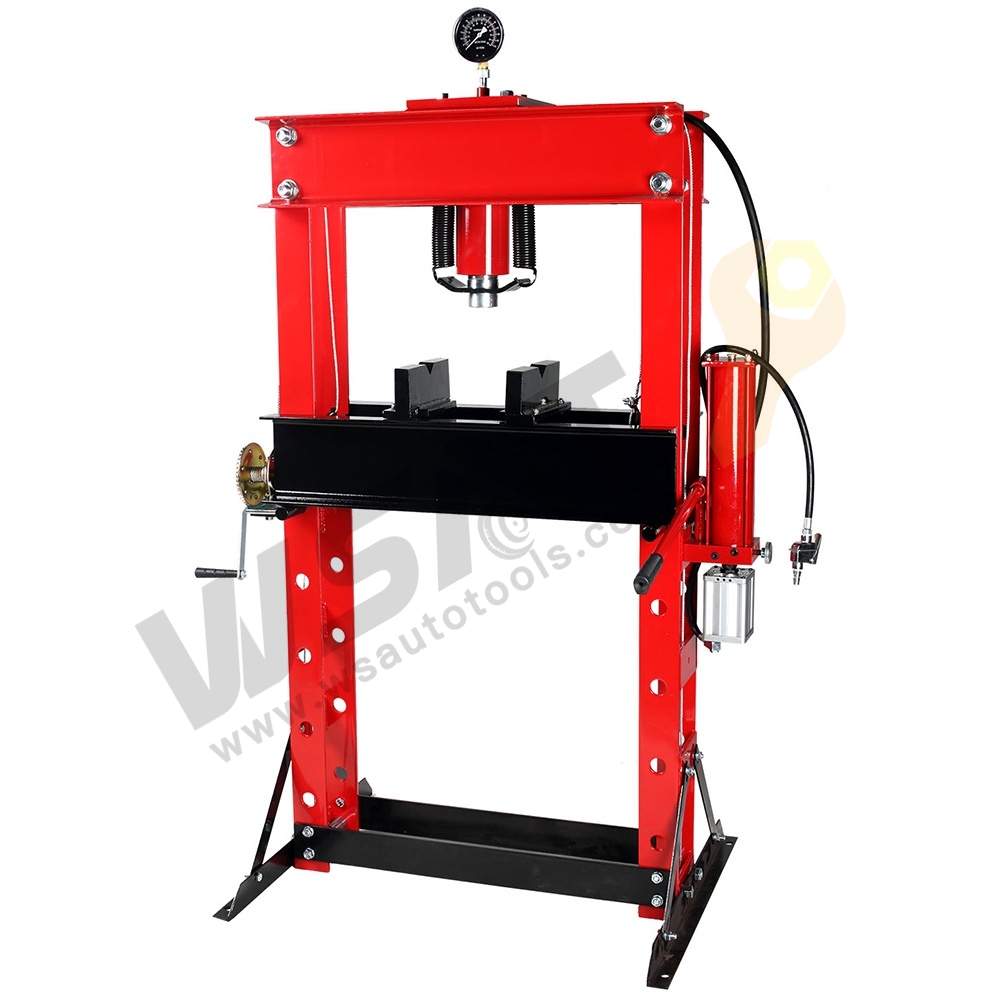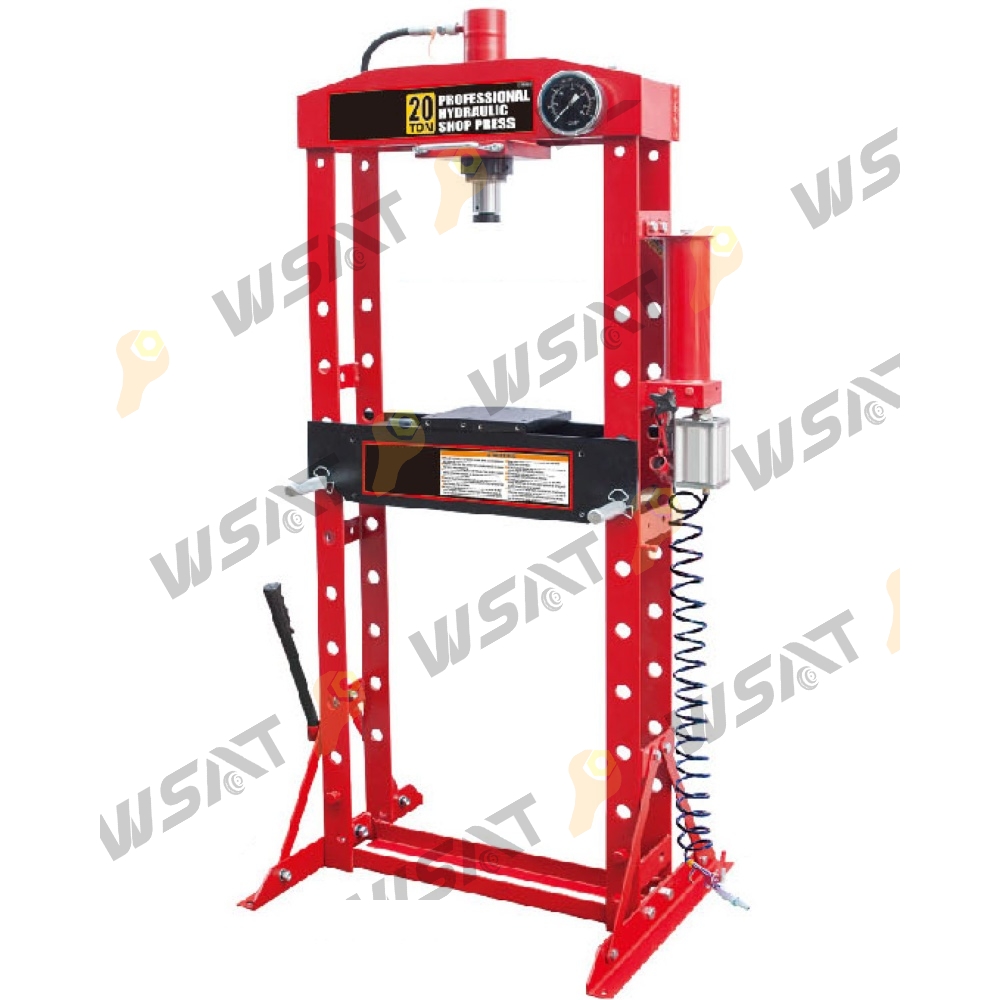For professional mechanics, metalworkers, or anyone interested in do-it-yourself projects, an efficient shop press is an invaluable piece of equipment that has multi-functional use. Shop presses are used for numerous actions such as bending, straightening, and even pressing bearings and bushings. Given the multitude of presses in the market, selection can be overwhelming.
In this guide, we will help you identify the key factors that will allow you to choose a shop press that matches your precise requirements, budgetary constraints, and available space.
Types of Shop Press and Their Applications
Type | Drive Method | Features | Application Scenarios |
Manual Hydraulic | Manual pump | Simple structure, low cost, easy maintenance | Small repair shops, light-duty pressing tasks |
Air source + hydraulic cylinder | Easy to operate, high efficiency | Medium-sized workshops, frequent operations | |
Electric pump | High automation, stable pressure | Industrial production lines, high-volume pressing | |
H-Frame | Various drive methods | Stable frame, strong load-bearing capacity | Heavy equipment repair, metal fabrication |
C-Frame | Various drive methods | Compact footprint, easy to operate | Maintenance areas with limited space |
How to Pick the Right Shop Press
In the face of a wide range of shop press models on the market, how to select a model scientifically and accurately match your actual needs?
The following 5 dimensions will bring you a comprehensive grasp of the selection.
Confirm Application and Tonnage Requirements
Pressure requirements vary greatly from application to application:
Light duty (e.g., press-fit bearings, bushings): 10-12 tons is sufficient.
Medium duty work (e.g., hub assembly and disassembly, farm machinery repair): 20 tons is ideal.
Heavy-duty work (e.g. hydraulic cylinder assemblies, engineering equipment disassembly): 30 tons or more is sufficient.
When selecting, it is important to evaluate the frequency of operation, the maximum press force and the component specifications to ensure that the shop press is neither overloaded nor overloaded, in order to save on investment and to avoid overfeeding the machine.
Different Drive Methods
Manual hydraulic: suitable for low frequency of operation, limited budget scenarios, simple structure, easy maintenance.
Pneumatic hydraulic: requires an air source, suitable for medium frequency, the pursuit of efficiency in the maintenance workshop.
Electro-hydraulic: highest efficiency, suitable for continuous high-volume operation, suitable for supporting automated production lines.
Your decision-making needs to take into account the purchase budget, operational efficiency and energy support.
Structure and Functional Configuration
High quality shop press not only relies on the tonnage, but also lies in the reasonable structure and humanized design:
H-shaped frame: stable structure, high bending strength, suitable for heavy-duty working conditions.
Height-adjustable working table: easy to adapt to different part sizes.
Pressure gauge and limit device: improve work precision and safety.
Replaceable molds: enhance the versatility and generality of the equipment.
At the same time, your attention should be paid to the quality of weld seams, cylinder sealing and other details.
Brands and Necessary Certifications
Reliable brands often imply higher standards and well-established after-sales systems.
It is recommended to prioritize brands with the following characteristics:
a. CE, ISO9001, UL and other authoritative certificates.
b. Provide not less than 12 months warranty
c. Provide spare parts replacement, technical training, remote assistance and other services.
Also, in case of bulk purchasing, it is more important to evaluate its supply capability, contract fulfillment record and customer feedback.
After-sales and Lifecycle costs
The "true cost" of a shop press is much more than the purchase price:
Difficulty of maintenance: are there a lot of wearing parts? How long is production downtime for repairs?
Spare parts price and supply cycle: is it easy to get matching cylinders, seals, fittings molds?
Energy consumption and consumable costs: does the electric model save electricity? Does it require more frequent maintenance?
From "initial investment" to "whole life cycle management" thinking, in order to achieve real benefits in the long term.

Selecting an appropriate shop press goes beyond technical specifications. It also concerns the long-term protection of operational efficiency, customer relations, and corporate image maintenance. From needs assessment to design detail, brand selection to after-sales support, and holistic cost consideration during the equipment life cycle, only by ensuring a worthwhile investment will you derive the optimal return on investment.
That's why more and more professional auto mechanics are choosing Winsen.
Why choose Winsen?
As a bulk channel brand focusing on automotive repair equipment, Winsen is committed to providing shop press solutions that are more stable, more economical and more understanding. We have:
Diversified products: covering tons of various specifications, pneumatic, electric line complete
Sufficient stock, rapid delivery: shorten the delivery period, support flexible ordering
kit full set of support: bracket / indenter / V-block and other full range of accessories
Guaranteed service: long term warranty, professional engineers remote technical guidance
Bulk purchase is more favorable: we support B2B bulk inquiry, cross-regional delivery, platform docking is more efficient!
Whether you are a workshop operator, channel wholesaler or equipment distributor, Winsen can be your reliable partner.
If you are preparing for a round of purchasing decisions, now is the perfect time to explore Winsen's products and services.
Come to Winsen and choose a shop press that really "packs a punch". Feel free to conatct us!









